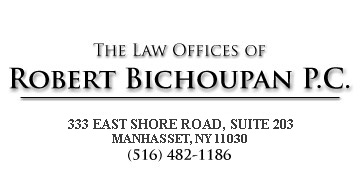Articles
|
A New Way To Transfer Real Estate Upon Passing
July 30, 2024
Transfer on Death Deeds - An Imperfect Tool On April 20, 2024, New York State introduced a new way for property owners to transfer real estate after they pass away and without need for probate or administration. This new option, known as a Transfer on Death (TOD) deed, allows owners to designate those who will automatically inherit property such as a house, condo or vacant land upon the owner’s passing. Those with a bank account containing a transfer on death designation may be familiar with the idea. Owners will retain full control of their property while they are alive, including the right to sell, mortgage, change beneficiaries, or even revoke the deed. This may allow greater control than a deed merely reserving a life estate. However, this new option has serious limitations and may not be suitable for everyone's situation. | |
|
Some Limitations: - Creditor Exposure: The property is still subject to claims from the owner’s creditors after their death, including claims by Medicaid.
- Beneficiaries are limited: The new law restricts who can receive the property under a TOD and in what percentages. For example, trusts cannot be named as a beneficiary.
- Jointly Held Property: There is ambiguity surrounding how TODs apply to the Decedent’s disposition of property that was jointly owned.
- Recording: The TOD deed must be recorded before the owner’s death. This includes a change of beneficiary deed. If recording (not execution) does not occur before death, there is a problem.
- Additional Signing of Witnesses: A TOD must be signed before two witnesses as well as a Notary Public.
- Subject to Encumbrances: The beneficiary takes title subject to any liens or mortgages to which the property is subject upon the Owner’s passing.
- Lapse if Beneficiary doesn’t survive: The intended gift fails if the designated beneficiary fails to survive the Owner.
- Lapse if Property Not Owned at Death: the deed is meaningless if the property is sold, transferred or lost prior to Owner’s death.
While TOD deeds may seem simple and cost effective, they may not meet everyone’s estate planning, creditor protection, tax avoidance and other goals. Wills and Trusts offer more complete solutions and options. It is therefore recommended that you consult with an estate planner to decide the best approach for your property transfer based on your own situation, which will be different from anyone else’s. It is impossible to anticipate every possible outcome using this new tool or to discuss it fully in this short article, but there may be a place for it in your estate planning. Many feel that this new TOD option may also cause a variety of legal issues to come up and discourage its use. Time will tell. Feel free to reach out to the author with any questions you may have. Robert Bichoupan, Esq. |
|
Prior results do not guarantee a similar outcome. All information posted is general advice only, based upon the rules of NYS, and is not intended to be a substitute for personal legal advice. Although information provided here was accurate as of the date of posting, laws change frequently and rules in other jurisdictions may differ. Therefore, readers should not rely upon these postings but should consult an attorney to discuss their specific factual situation.
|
|





